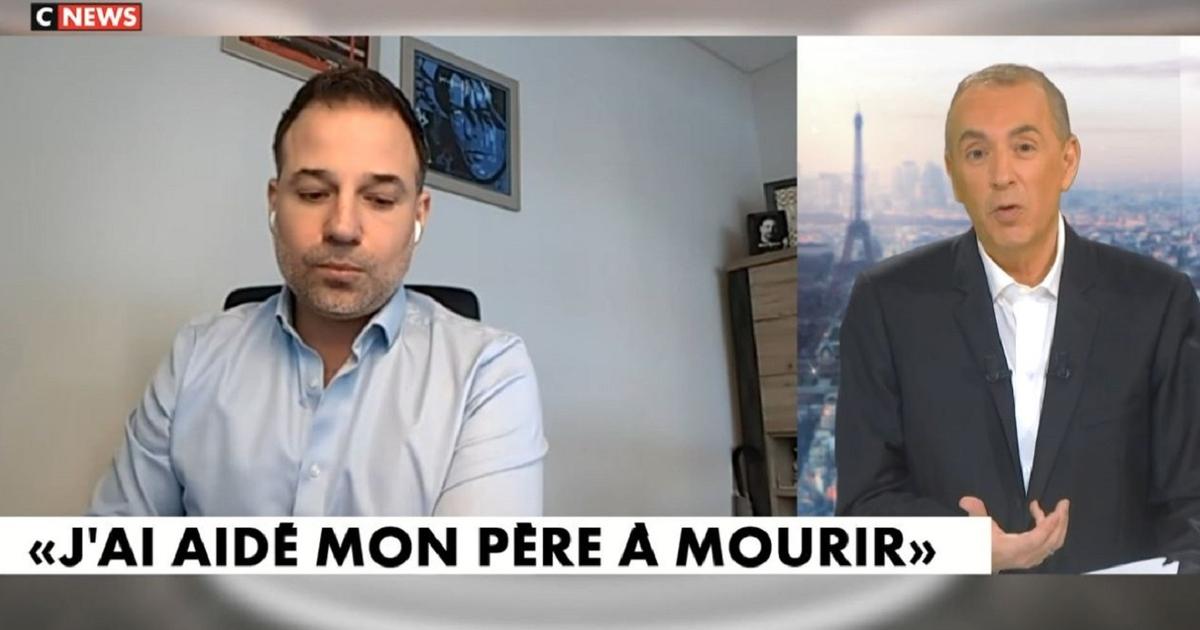“I can't be the father you want me to be.
My mind is captured by my ideas and by the need to write them down.
The New York writer Norman Mailer, one of the essential literary voices of the 20th century, said it many times to Susan, the eldest of the nine children he had with his six wives.
The eldest daughter, a psychoanalyst living in Chile since the eighties, began to understand the background of these words in 2014, when her father had been dead for seven years, and she decided to write a book about her relationship:
Elsewhere
(Lumen).
It was a liberating journey.
It is not a predictable exercise in settling debts with his father, but rather a complex journey of light and shadow, the intimate portrait of a public man whose book launches included John Lennon with Yoko Ono, Woody Allen or the Kennedys (it was close friend of Jackie's).
From a daughter trying to live up to it.
Even a testimony of deep love, of reconciliation.
Of a lack of sense of belonging and of a woman between two forces —that of the mother and that of the father— that she ends up finding her identity only when the parent has died.
“I would never have written this book while he was alive.
It would have been like being the daughter of Charles Chaplin and wanting to be a comedian," says Susan Mailer Silverman, 73, in the dining room of her Santiago de Chile apartment on a hot summer afternoon, shortly before Christmas (a holiday she does not celebrate due to her Jewish tradition).
She lives here with her husband, Marco Colodro, a Chilean economist and businessman.
They have three children and four grandchildren.
With deep clear eyes, like her father, Susan was the only daughter of Norman Mailer and Beatrice Silverman, "a woman born in Boston, a feminist before the feminist movement, a defender of free love and the use of contraceptives, an absolute opponent of discrimination racial”, who studied Medicine when he was older.
She was a pianist and was studying psychology when she met Norman, who was combining studies in aeronautical engineering with literature.
In 1943 they secretly married and soon after, he, aged 20, received the order to join the Armed Forces: "The Army was the worst experience of my life and also the most important," Mailer said, according to the book of his daughter.
Posted first to the Philippines and then to Japan, for three years he wrote to his wife almost daily and she kept her letters.
It was the material for Mailer's first novel,
The Nudes and the Dead
, which he published in 1948. Considered one of the best books on World War II, it marked his leap to the forefront of literature.
He was 25 years old and his most controversial character debuted, himself.
Susan Mailer commissioned a piece of furniture for the first editions of her father's books and installed it in her apartment in Santiago de Chile.
Next to the volumes, a photo of the writer and one of his boxing gloves. Tamara Merino (Contact)
Susan was born in 1949, although the marriage broke up soon, and when he was not yet two years old, Mailer already had a new relationship with what would be his second wife, Adele Morales.
It was when the frequent exile for the girl began: between her father who lived in New York and her mother who moved to Mexico City, the country of her new husband.
A father and a mother who maintained a friendly relationship —they visited each other with their new partners—, but who soon began to get along badly.
“It is the reason for the title of my book.
When I was a child and I was with my father, I forgot about Spanish, about my mother and about Mexico, and when I was in Mexico, it was English and my father that I erased.
When he was older, this became an emotional and geographical being in another place, a different place from the one he inhabited, ”says Susan Mailer in Santiago de Chile, where she has made a career as a psychoanalyst specializing in the relationship of the mind with the body.
She speaks perfect Spanish with a Mexican accent, although her Anglo-Saxon tone does not go unnoticed.
Susan Mailer, at her home in Santiago de Chile.Tamara Merino (Contact)
Mailer enjoyed life and its excesses, which he combined with a prolific professional career, with texts praised throughout the world such as
The Combat
, the masterful chronicle of the Ali-Foreman fight in Zaire in 1975. There was no night in that he did not have a party, with a lot of alcohol and, at times, a lot of drugs.
Become a classic of journalism and literature at a very young age, he was one of the inevitable social life in New York.
"Better to die like a demon in the fire than like an angel on the wings," Mailer came to write, who could end a game with blows or bite an actor's ear in the middle of filming, as happened in the filming of the film he wrote and directed in 1968,
Maidstone
.
Like many of the writers of his generation, his professional and human reference point was Ernest Hemingway —"the alpha male white whales, they are called in the United States," explains his daughter—, who showed manliness with rudeness, alcohol, fights and women.
Mailer spent long periods of time in Mexico every year for his eldest daughter, who in his book
Elsewhere
details their visits to the bullrings in realistic and distressing prose.
The blood, the pain of the animal, the fear, the violent scenes.
In her book, Susan describes luminous episodes in parallel, such as the trips by land from Mexico to New York, the motels with swimming pools.
Then, in the United States, the pain of separation: Susan was left at the house of her paternal grandmother, Fanny, because Mailer had a life that was not very compatible with a little girl.
As an adult she knew episodes of this time in the apartment on the Lower East Side, at the beginning of First Avenue.
The girl wasn't even five years old when Norman and Adele went out to a party and she, Susi—as she called her—wouldn't fall asleep.
To solve it, her father cut off the end of a pill, made her take it and left her home alone.
The next day, the creature did not wake up.
It looked like a rag doll.
Portraits of Susan Mailer's extended family at her home.
Her father had nine children with six wives and, despite the circumstances, they have remained united.Tamara Merino (Contact)
When Susan was 11 years old, what definitely marked the family happened: the writer stabbed Adele, mother of his second and third daughters.
He didn't kill her, she didn't report him, and Mailer was arraigned on felony assault charges but received probation.
“When someone mentioned his name, the thought was always: is he the one who stabbed his wife?
And the second question: was she your mother?” recalls Susan.
“To write the book I had to explore what this fact had meant.
It was an earthquake for the family and we were picking up the little pieces of the earthquake until her death.
They were the pages that gave him the most work to write.
In her teens and youth, Susan had to juggle.
She always between Mexico and the United States.
The argument was repeated several times: a new woman appeared with whom she replaced the previous one and with whom she had children.
The entire family had to get used to crying babies and depressed mothers again.
He could be harsh with his children: “Violence was on the surface.
He never hit me nor was he one to say rude things to us.
But he was always setting the pace for us.
He was authoritative and challenged us in every way,” Susan describes.
An absent father and, at the same time, present at times, recounts his daughter.
Despite his dedication to work — "she was always writing" — she tried to take a month off with her extended family.
He could become a supportive father, as happened when Susan had a teenage pregnancy at age 17 that didn't carry to term.
Demanding in intellectual and physical good looks, he was never truly up to partaking in New York's glamorous dinner parties, though Susan did accompany him on the second of his two unsuccessful campaigns for New York mayor.
Nights with Truman Capote,
Dorothy Parker… “It was so bright that everything around it turned pale.
You would walk into a place with him and people would step aside to greet him,” says Mailer's eldest daughter, whose last stepmother, Norris Church, was the same age as hers.
“I needed the father and tolerated the writer,” but “barely could bear the provocative character,” he writes.
She tells it about what happened in 1971, in the midst of the second wave of feminism, when her father was invited as a moderator at the
Dialogue on Women's Liberation event.
The panelists were four radical feminists, and the audience included people like Susan Sontag.
Mailer was the symbol of machismo.
She would say lines like "I don't hate women, but I think they should be kept in a cage."
That night she provoked so much that she received a public massacre in response, with insults and rudeness.
“It was spectacularly violent,” recalls Susan, a young feminist sitting in the front row.
Mailer holds a copy of his memoirs.Tamara Merino (Contact)
"He enjoyed fighting and confrontation, and he liked being the center of attention," Susan Mailer eventually understood, who at the age of 26 met Colodro, a Chilean exile in Mexico, an opponent of the Pinochet regime.
It was the beginning of a new cycle.
She decided to abandon the fantasy of exceptional lives and move with her husband to Chile, which in those years was not only a distant country, but also backward, dark and under a dictatorship.
“I realized that it was not necessary to be famous to be seen,” she recounts in her book about her difficult insertion in the country, where she has had a great career, but without much public exposure.
“Are you the daughter of Norman Mailer and do you have such a normal life?” She often asks people in amazement.
Her father traveled to Chile twice to see her, while she visited him in the United States every year, until her death in 2007.
Susan will participate in New York in some of the activities that will be held to commemorate the 100th anniversary of her father's birth, on January 31st.
She has an intense schedule promoting her memoirs, which she first wrote in English and then translated into Spanish.
“I freed myself from my dad by writing.
I no longer feel his shadow chasing me.
I'm not thinking about whether or not he would approve of what I do.
The shadow of the father left and the love of the father appeared, whom I miss a lot today, ”she reflects.
These days she is working on her first fiction novel.
Subscribe to continue reading
Read without limits
Keep reading
I'm already a subscriber









